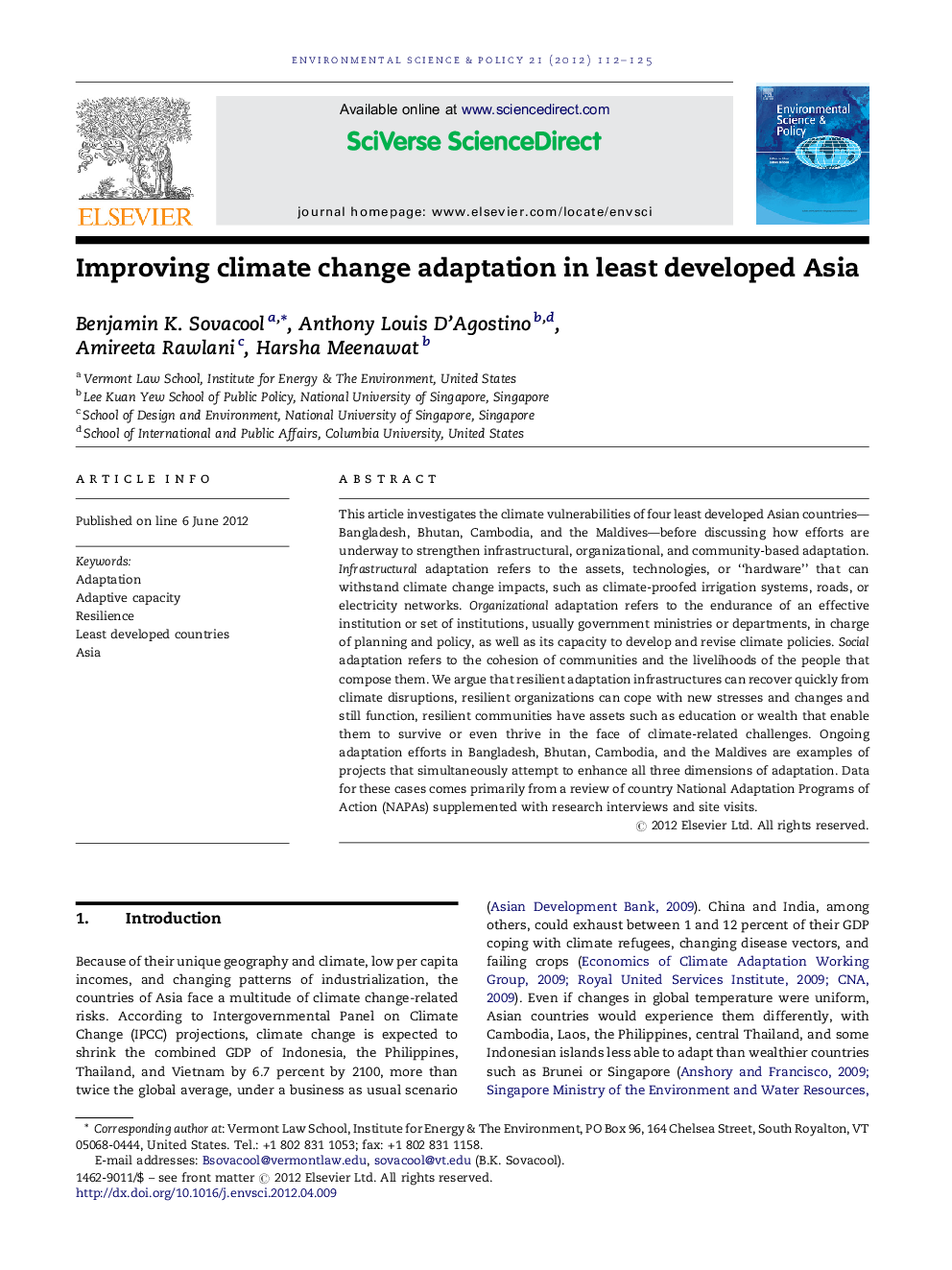| Article ID | Journal | Published Year | Pages | File Type |
|---|---|---|---|---|
| 1053688 | Environmental Science & Policy | 2012 | 14 Pages |
This article investigates the climate vulnerabilities of four least developed Asian countries—Bangladesh, Bhutan, Cambodia, and the Maldives—before discussing how efforts are underway to strengthen infrastructural, organizational, and community-based adaptation. Infrastructural adaptation refers to the assets, technologies, or “hardware” that can withstand climate change impacts, such as climate-proofed irrigation systems, roads, or electricity networks. Organizational adaptation refers to the endurance of an effective institution or set of institutions, usually government ministries or departments, in charge of planning and policy, as well as its capacity to develop and revise climate policies. Social adaptation refers to the cohesion of communities and the livelihoods of the people that compose them. We argue that resilient adaptation infrastructures can recover quickly from climate disruptions, resilient organizations can cope with new stresses and changes and still function, resilient communities have assets such as education or wealth that enable them to survive or even thrive in the face of climate-related challenges. Ongoing adaptation efforts in Bangladesh, Bhutan, Cambodia, and the Maldives are examples of projects that simultaneously attempt to enhance all three dimensions of adaptation. Data for these cases comes primarily from a review of country National Adaptation Programs of Action (NAPAs) supplemented with research interviews and site visits.
► Resilient infrastructures can recover quickly from climate disruptions. ► Resilient institutions can handle stresses and changes and still function. ► Resilient communities can survive or even thrive in the face of climate-related challenges. ► Adaptation efforts in Bangladesh, Bhutan, Cambodia, and the Maldives enhance all three dimensions of resilience.
